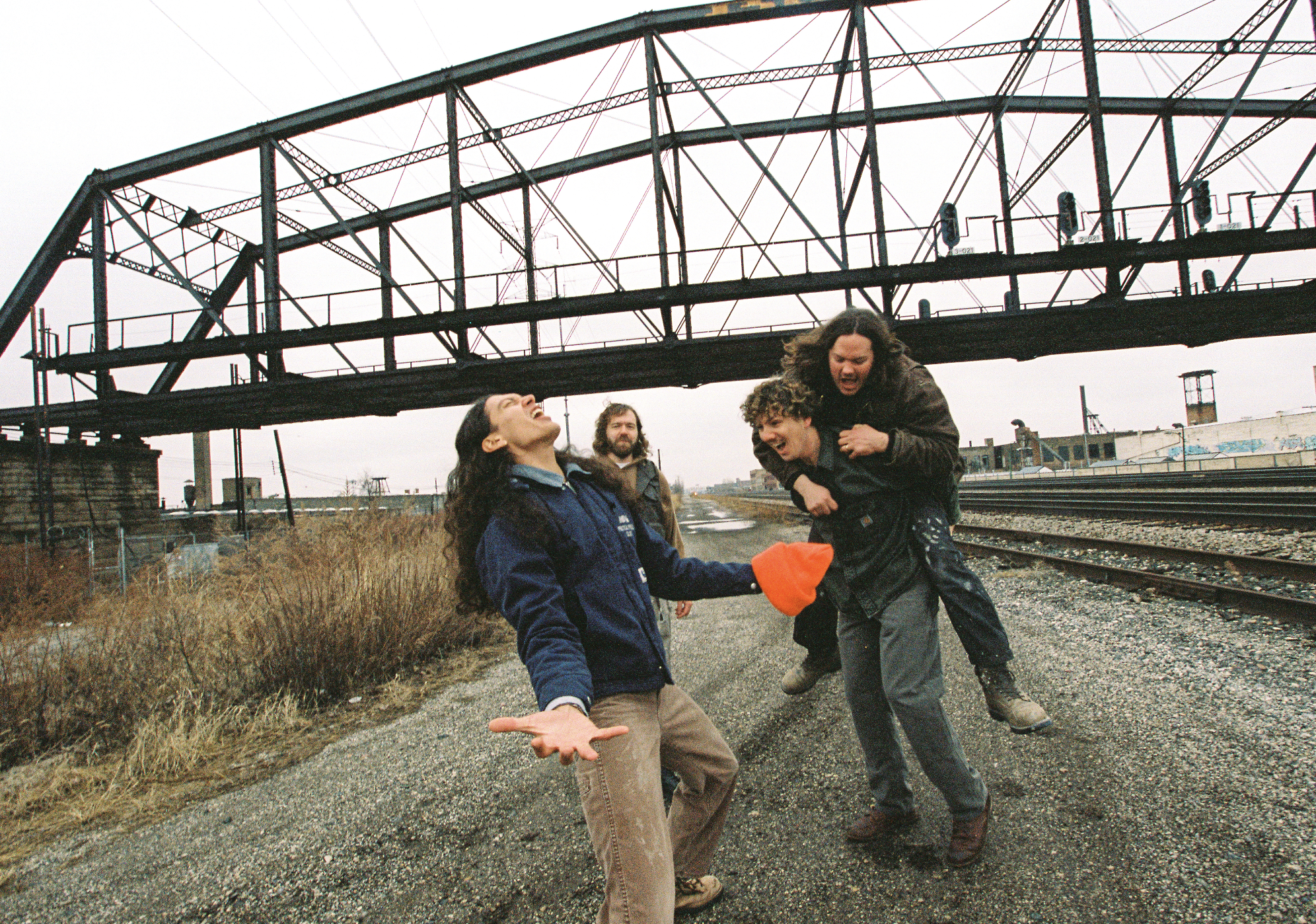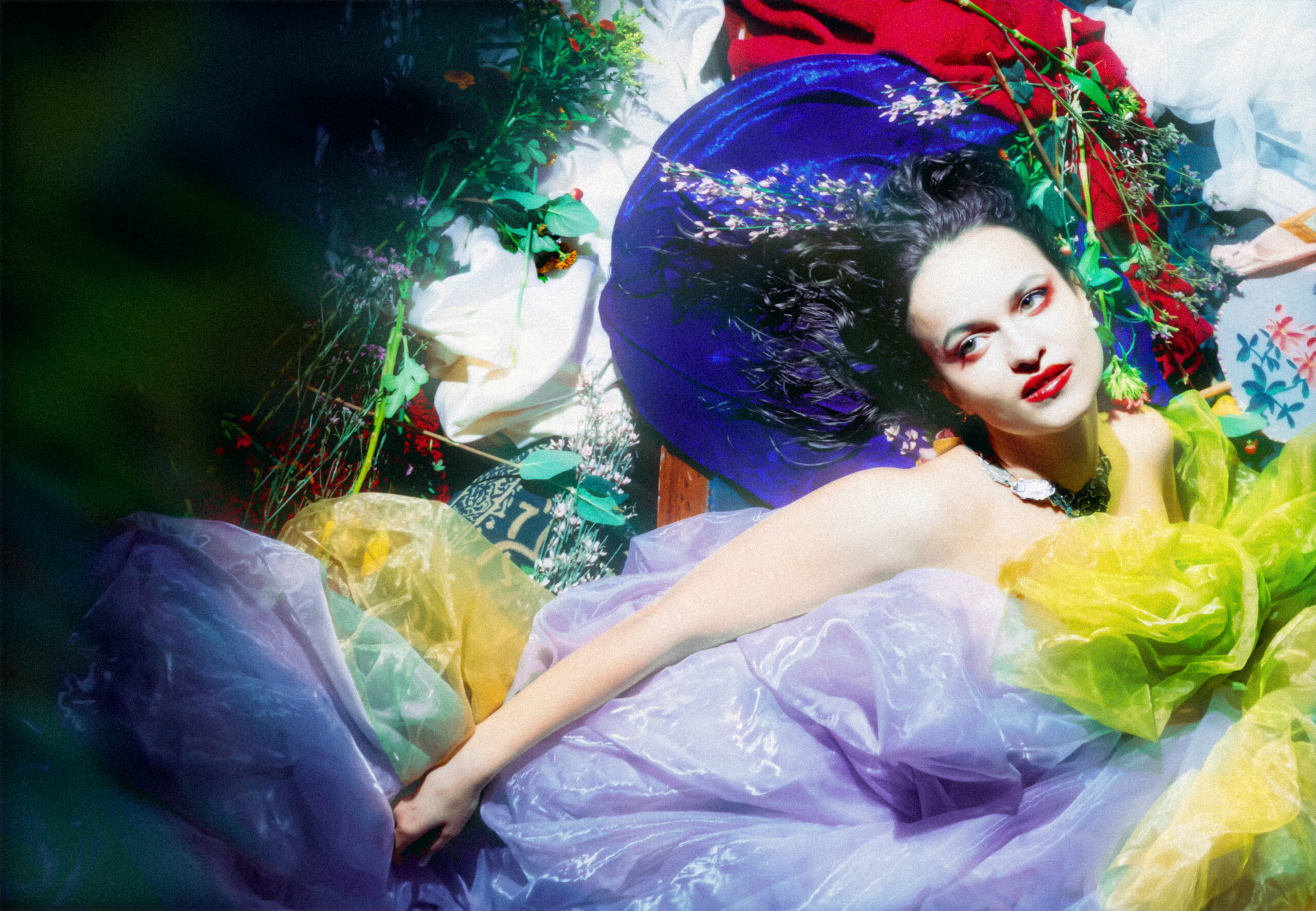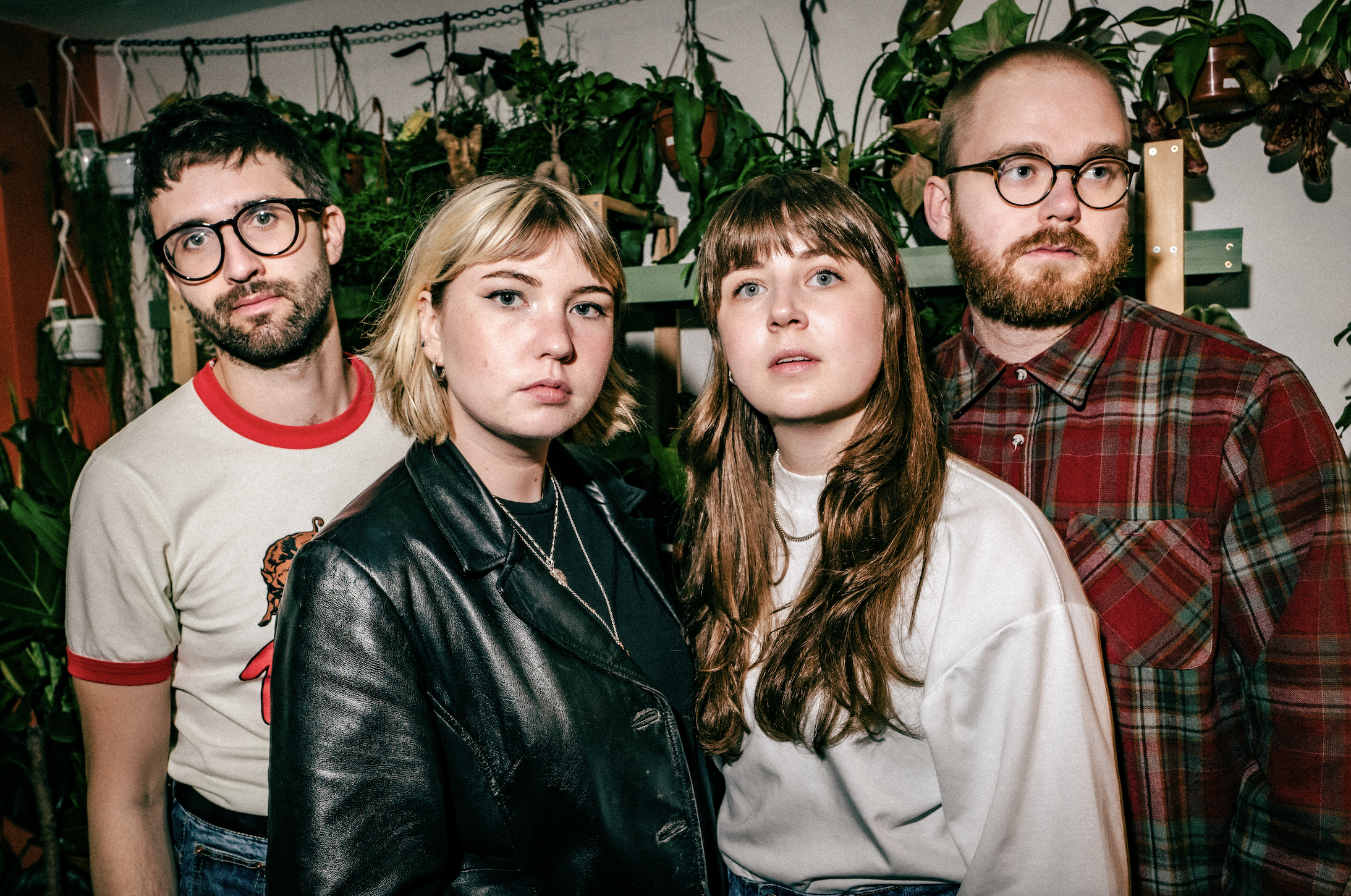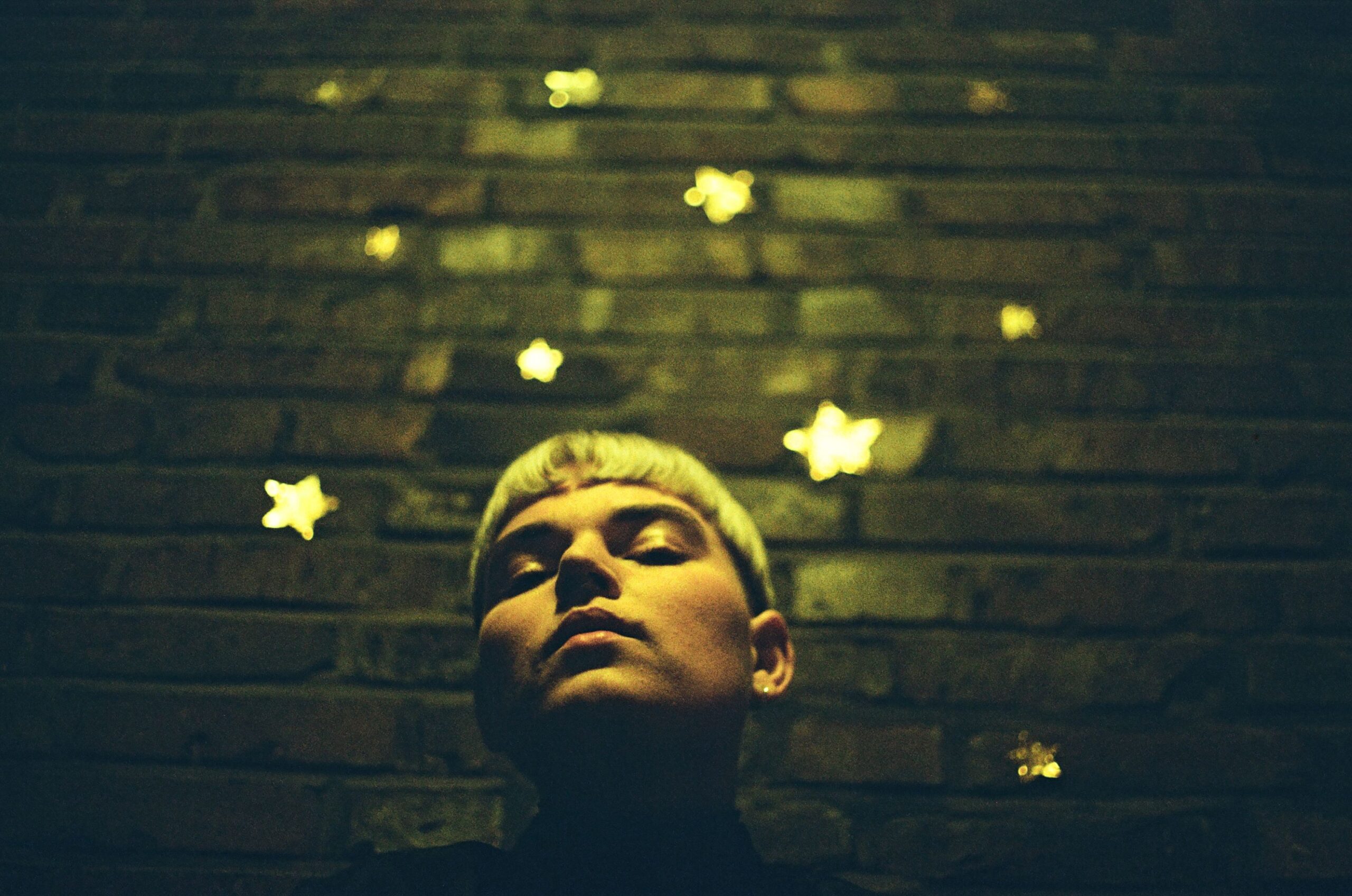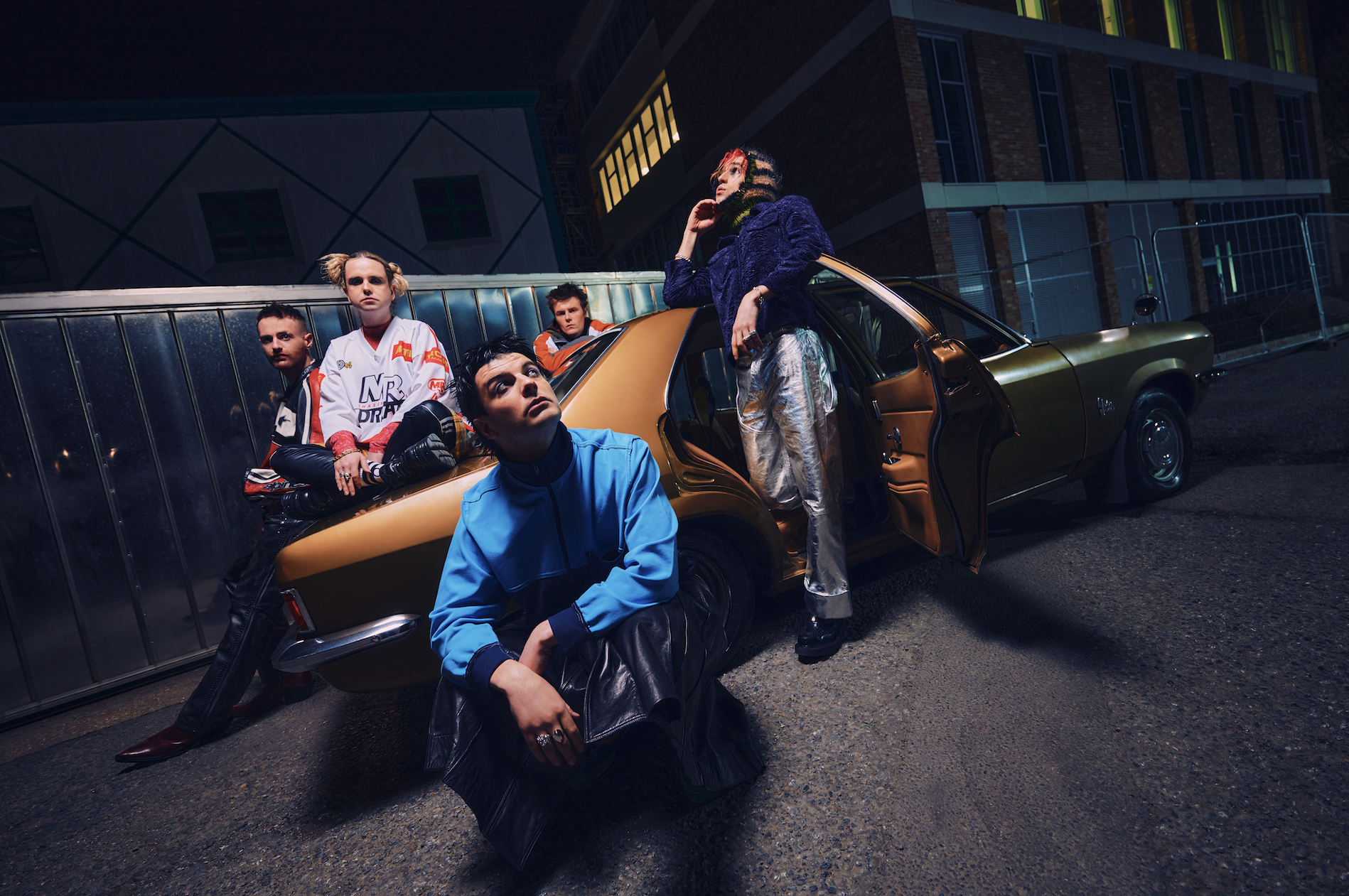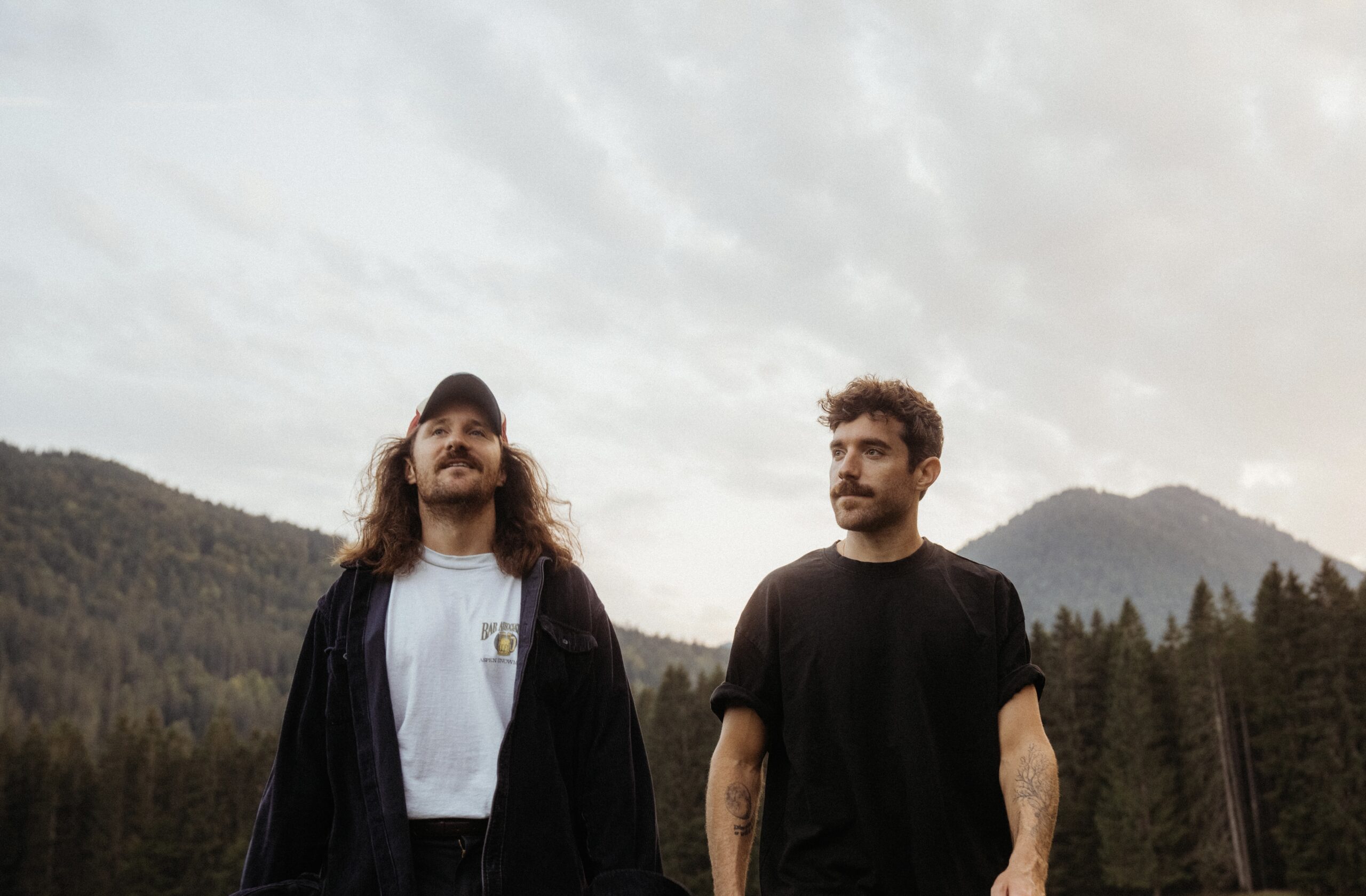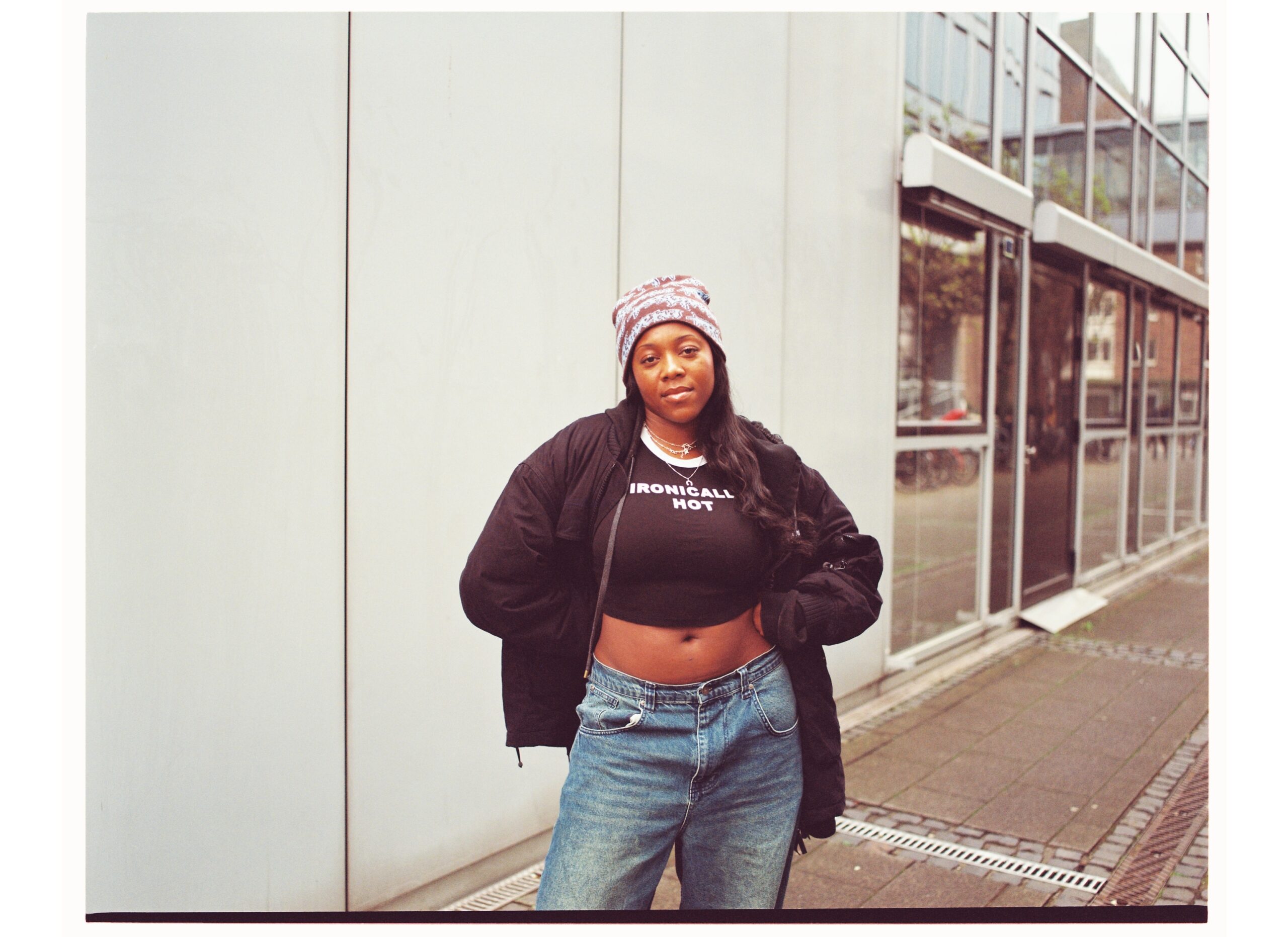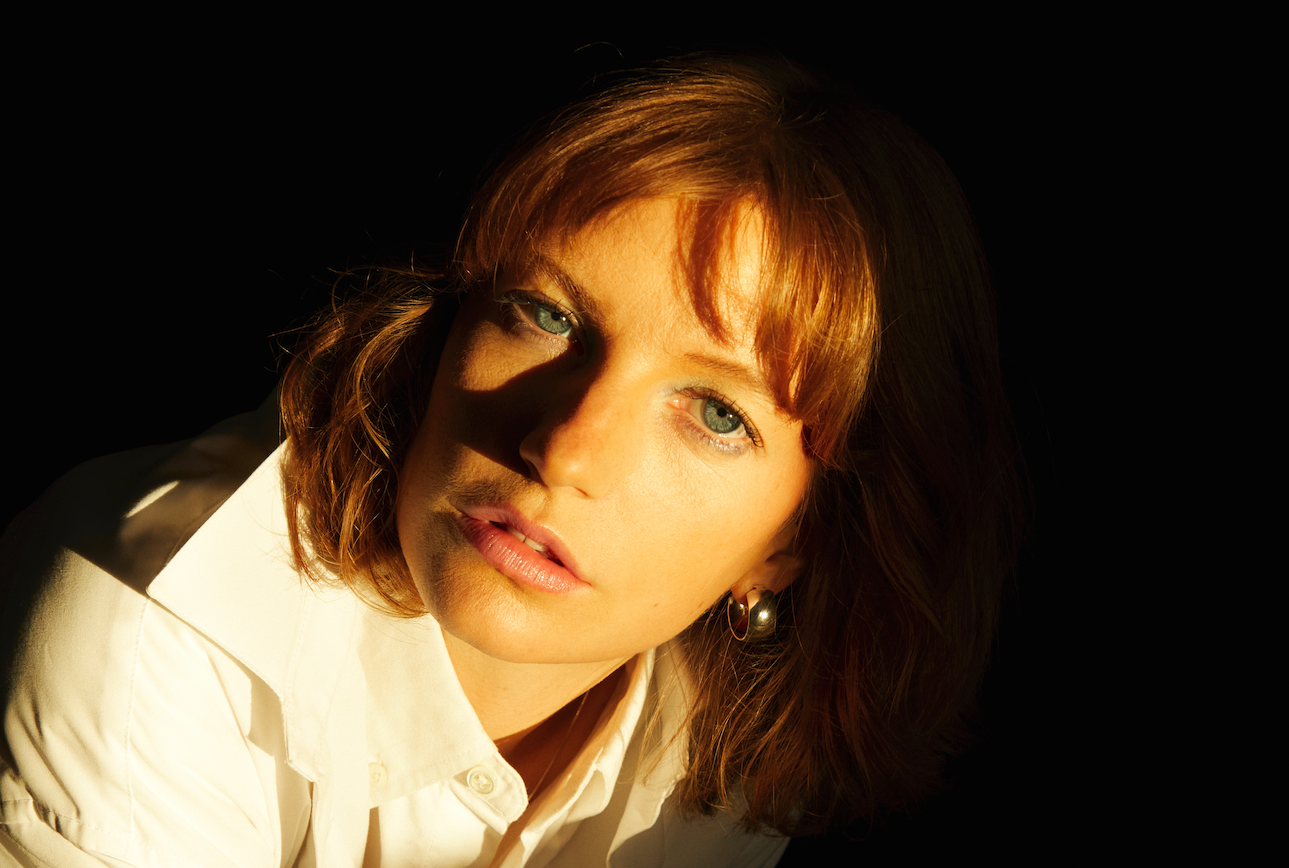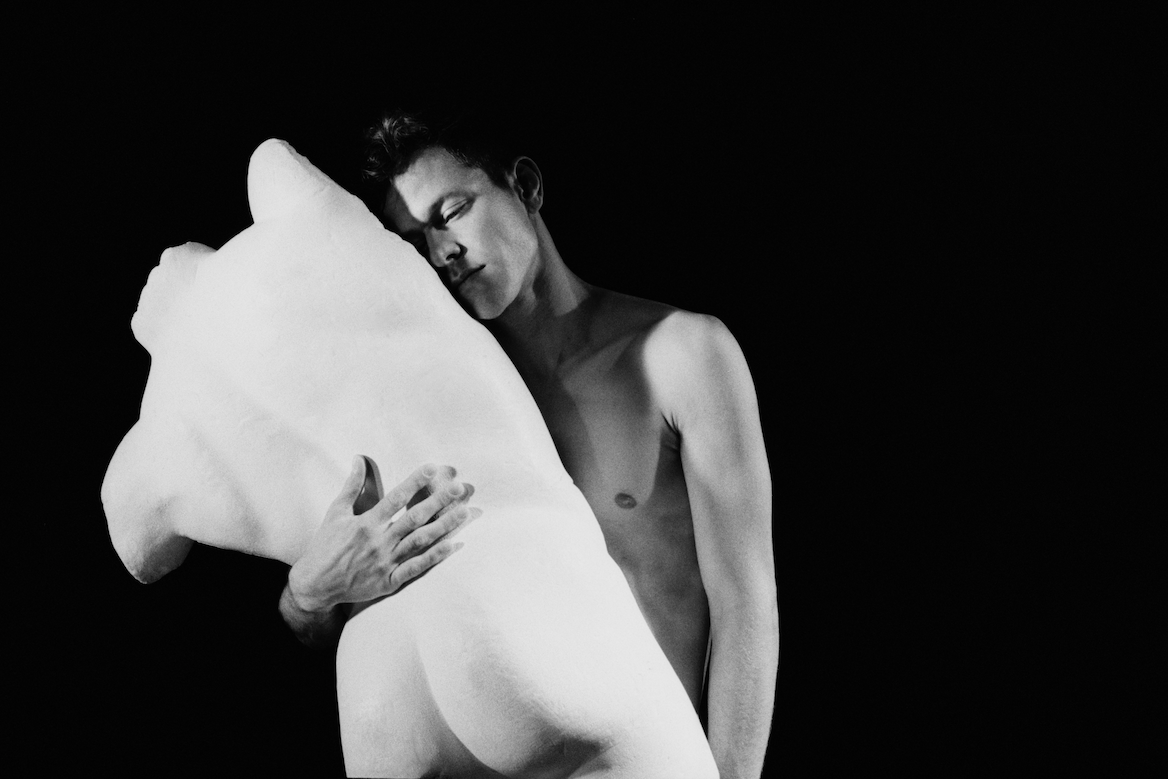Foto-Credits © Beggars Group
Mike Hadreas aka Perfume Genius ist kein Künstler, der Dinge auf die leichte Schulter nimmt. Seine Kunst lebt von einer detaillierten Gesamtvision, die sich mit Rohheit und Emotionalität vermischt. Er sei nicht eitel, wenn es um seine Musik geht, er sei nur getrieben auf der Suche nach Verbindung. Sein bisher fünftes Studioalbum Set My Heart on Fire Immediately erschien am Freitag bei Matador Records (hier geht es zu unserer Kritik). Geblieben ist die Körperlichkeit, die Unmittelbarkeit, gekommen ist eine selbstbewusste Dringlichkeit, ein Einfordern von Gehör, das er sich bei klassischen All-American-Guys wie Elvis abgeschaut hat, wie er im Interview erzählt.
Wir haben im März mit ihm telefoniert und über die neue Platte gesprochen. Hadreas teilt seine Gedanken über Selbstzweifel als essenziellen Teil des kreativen Prozesses und seine innere Unruhe, immer mehr auszuprobieren, sich immer weiter zu pushen. Wir erfahren, warum er sich entkoppeln musste, um sich um sich selbst zu kümmern und jetzt den Versuch unternimmt, sich wieder mit der Welt und sich zu verbinden und trotzdem gesund zu bleiben. Außerdem sprechen wir darüber, wie er seine Rolle als queere Ikone sieht und warum er manchmal in Badezimmer geht, um einen bestimmten Song zu hören. Im Interview wird deutlich, dass es sich bei Perfume Genius um ein Projekt handelt, das vielschichtig gesehen werden muss, um seine ganze Schönheit zu begreifen. Und wie Hadreas reagiert hat, als der Autor Ocean Voung genau das geschafft hat.
Congratulations on your fifth album that is released in May. How does it feel putting out a new record as an established artist compared to your early days?
It’s complicated. In some ways, I feel so much more assured and confident in all different parts of it beyond music. It takes a lot of people to put it out and I’ve had relationships with the people I’ve worked with for a long time. Beyond that, creating a visual world, a stage and performance, there are so many elements that I had to learn how to do in front in everybody. My first record was the first songs I’ve ever made and the first shows with that album were the first times I was singing in front of anyone. Over the years, I’ve learned, what all this is in its entirety. It’s not just writing. There is this whole huge part of it that I’m slowly figuring out how to be more confident about, how to be more thoughtful even.
Can there ever be any routine in the process?
The only routine that I figured out is that it sucks for a little while and then it gets better. I try to write, and nothing happens, and I get frustrated and I feel like I’m never going to be able to write music again. It’s always hard, but I realized that’s part of it. You need that part before everything cracks open and you figure out what you want to do and what you want to say.

Regarding the different steps in the creative process, you’re very involved in many of them. You’re a dancer and you’re a director: Do you need different creative outlets, and do they all channel the same thing?
It all comes from the same place. It’s through different tunnels, but essentially, I never have a shortage of ideas. I’ve always had a lot of ideas and lots of dreams and things, I want to do. I can be shy, but I’m not fearful about trying stuff. I feel capable for some reason of at least trying everything. When I have a clear vision, I just try to do it on my own — as far as the initial idea of creation. It takes a lot of people to make everything, but it’s still a decision that I’m going to follow through on my vision. It just feels right for me to direct those videos. I had such a clear vision for the world and what I wanted it to feel like and look like. Even down to my hair and what everybody is wearing, those specific technical things. I had a map for all of it. So, I didn’t need help in that area.
That also touches a very physical side of art. Your bio says that on the record, the body sings itself into the future. Do you experience writing physical process?
It’s very weird to think that way and I definitely think that way a lot more now and at least I’m acknowledging when it’s happening. I’ve always felt like being creative was something where you had to be in another world, in full fantasy, and almost disconnected from reality – swimming around in an unknown alien place. Through the dance and through all kinds of other things, I found that on the flipside you can find that thing through being hyper present, hyper connected, and hyper in your body. That part of the feeling in creation has formed this record a lot more than the other ones.
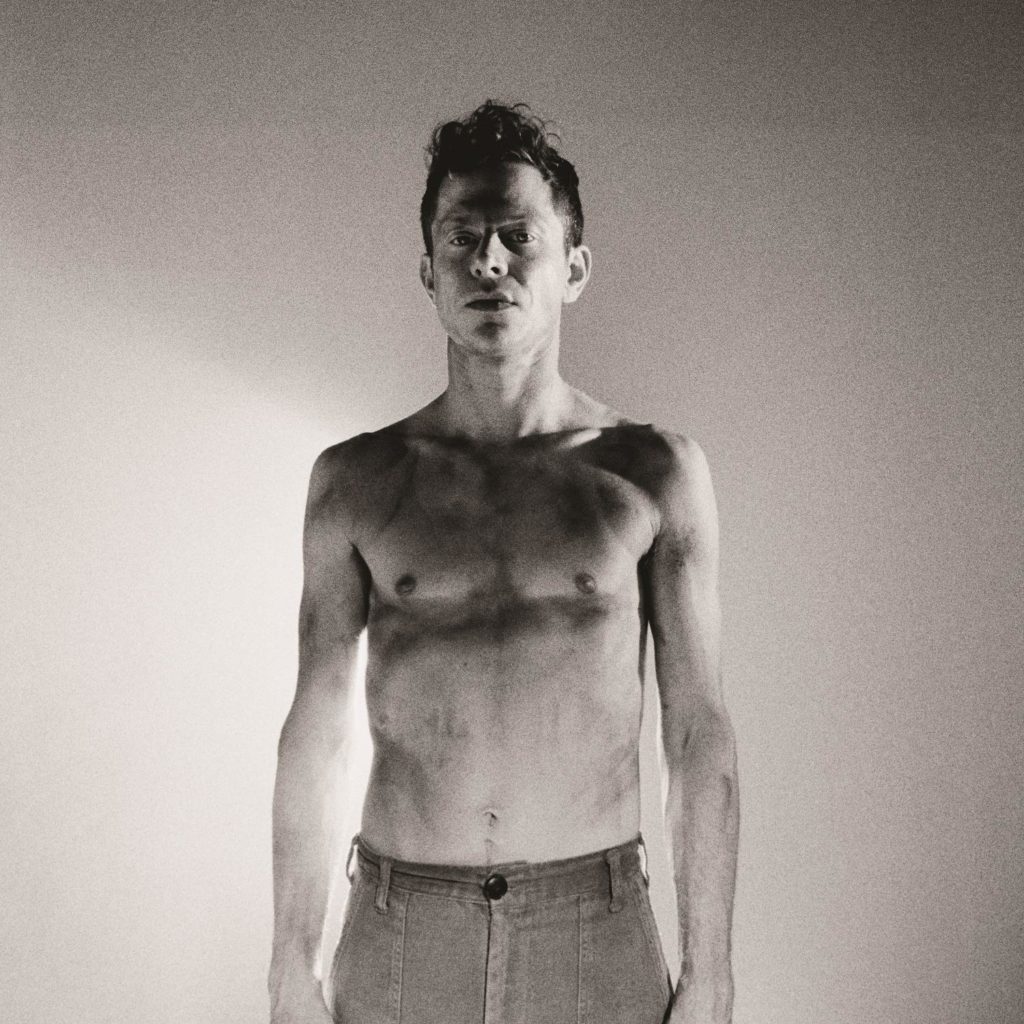 How would you describe Set My Heart on Fire Immediately as an outcome of this?
How would you describe Set My Heart on Fire Immediately as an outcome of this?
Essentially, what I’m trying to find is a connection to myself and to my body and to where I’m at more fully and more joyfully. And to connect other people. I’m truly trying to find connection in whatever way that looks like, whatever feels the most important: Is it purely physical, is it intuition, grace or just a feeling or a quietness or a loudness – it doesn’t really matter to me. I just want the whole entirety. That drive comes along with the fear that maybe I shouldn’t be asking for it or that it’s unhealthy. At the same time, I’m starting to realize that I can create a life that has that and I don’t have to give up all the warm and responsible things I’ve learned by taking care of myself. I felt like I needed to be detached in order to heal for a long time and now I’m trying to attach again and keep all the things I’ve learned. That’s what it’s in the music.
The themes of love, sex, and memory that are a big part of the record, are very powerful, but also very essential forms of human connection. Do you think, they lie underneath it all?
I think so. They are very simple things, but there’s still such a wildness and a magic in all of it. I feel like everything can exist at the same time.
You said that with Set My Heart on Fire Immediately you wanted to feel more open and spiritually wild, did you restrain yourself from that before?
I think, I always have this feeling. This is my main – I don’t know if it’s a problem. I’m restless and constantly trying to go harder and be better or be worse. I’m just always looking. Especially when I make things, I try to go somewhere I haven’t been before. Not to get rid of everything that happened, but to bring it with me somewhere new.
With this restlessness, is it hard for you to be content with your work instead of trying to push it further and further?
It’s not hard for me to let things go. I’m okay with a song being messy and not having been tidied. I’m okay with letting them be, what they are. I’m not sacred about letting one go, because I know, I can make another one.
Are you writing new songs at the moment?
Yes, I have been. I don’t know, what’s going to happen with them or if they’re for other people, but I’m writing.
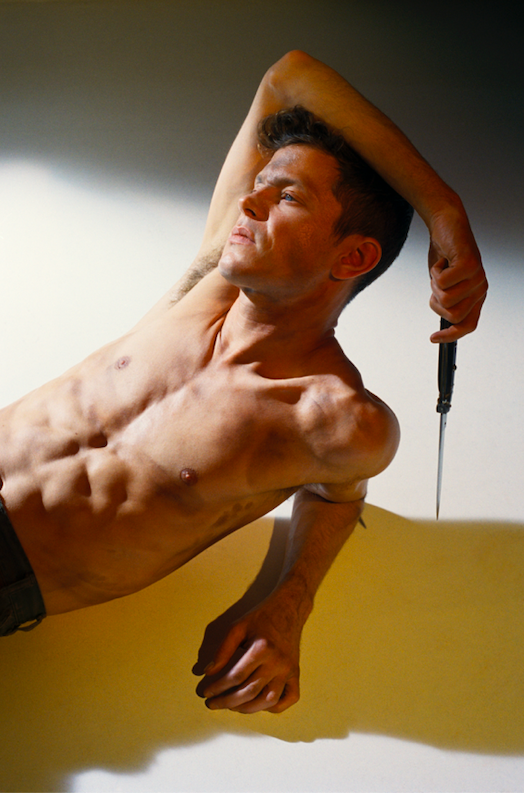 Why did you choose Describe and On The Floor as your fist singles that got pre-released?
Why did you choose Describe and On The Floor as your fist singles that got pre-released?
Sonically, in a technical way, the songs have different vibes. In a very practical way, I wanted to show the bigger picture of the record. I wrote On The Floor when I very much wanted to write a pop song for the people, and I wanted people to listen to it. I always write all the songs like that, but some of them feel weirder and way more personal. This one is personal, but I wanted to write a song that you’re listening to when you clean your house and you have something on and you’re crying and dancing at the same time.
Set My Heart on Fire Immediately was inspired by American pop culture icons like Cyndi Lauper and Elvis. What’s your personal relationship to America and its culture?
America itself is a shithole. But the music that I listened to growing up stayed with me for a long time. Like Elvis – these musicians I listened to my whole life, not just for a summer or the last year in high school. I’ve listened to these classics, these slaggery dudes and found something for a long time. But at the same time, I didn’t feel like they were writing for me or with someone like in mind. The stories they’re singing don’t include me. A lot of it is just braggy, but I don’t care. I thought, what if I used that kind of command and slagger and wrote music that people could carry with them for a long time. That specific way of confidence that they sing in, I’m much closer to that now. It felt really satisfying to just sing in a way that says, “Listen to me!”. Not asking someone to listen to me, just telling them.
It’s more about attitude than sound then?
Yes, also about how much performance is in those recordings. I wanted this record to be less like a narration and more like a captured moment of performance.
Your album also talks about masculinity and gender roles, you’re known and described as a queer icon and ambassador. Are you happy with that role?
I’m happy with it! I’ve been so irresponsible in my life and so purposeless. Having that responsibility feels really good and I’ve chosen to have that. I feel like I can be helpful in my music and I can say and do things that helps other people. If I go through it and I share about it, then maybe other people will have to do it less or at least they’re less lonely in it. I don’t feel like that in my daily life, I’m not that nice. I’m proud of that and I know how much younger people need that. Even now, I know how much I need that in other people. I’ve listened to music my whole life to do that for me. It’s a bit of medicine. I sometimes go into the bathroom at a party and put a song on and listen to it and then come back out. I think of it as a prescription.
If those men didn’t represent you, did you have someone like that for you growing up, that was helping you with their music?
I have lots of people like that. It’s never complete, it never can be. No one is going to share and sing about the entirety of your experience. But you can find pieces of that everywhere. I found that a lot growing up. Or at least, I was obsessed looking for it.
Do you think the world in general and the music industry in particular have made a step forward in matters of gender and sex discrimination?
I think by the nature of people being able to put their work out without a gate keeper… There are still gate keepers, but at least you can make your work available. It doesn’t guarantee that people are going to see it or take you seriously, but at least it’s there. Also, within communities, people are helping and championing each other. I feel like things have changed in an official mainstream way very slowly. But within communities and the way, people think and talk about art, I feel like that has changed. Which is really good.
The biography for the album was written by Ocean Voung — how did it come to that?
I have a hard time talking about music in a way I’m happy with. When I’m writing, I feel smart and I feel like I’m not taking away something inexplicable. That’s why I like to make music because I don’t really know how to translate otherwise. When I read his work, I had the feeling that he’s explaining something to me and putting a name on something that’s really deep and I haven’t been able to say out loud. Or I didn’t even know it was there for so long. It’s a powerful, beautiful thing to feel connected to someone else that way. I guess, I just selfishly wanted to hear some of that in a written way about this thing that I made. And it happened! I almost couldn’t read it when I read it.

Finding it difficult to talk about music, do you also have difficulties reading about music, especially your own?
If a bad review is very thoughtful, then it doesn’t matter me. But when it’s dismissive or rude, then it bothers me. I read some good reviews about my music that just perfectly talked about what I was trying to say and that I wasn’t able to do myself. That happened. It’s almost bizarre when people exactly get what I was intending. I’m not precious about it, people can say, whatever they need to about my music. I don’t care if their story is completely different than mine. But it is really satisfying to see someone writing about you in a way that feels so real and close. A lot of people just write about one thing and I get it. Some people will just write about my sexuality or they will just write about the technical or the emotional side and dismiss how much actual work I do and what it takes for me to make it. I feel like some people don’t like these things existing – heavy feeling and heavy effort.
All in all, I experienced the record as very future orientated, painful and hopeful at the same time. Does forward thinking come naturally to you?
I think so. Even if it’s just ten minutes ahead. Especially in the beginning, when I wrote music it was a lot about stories that had already happened. I feel like I’m in the middle of it now. I wanted the record to feel that way. Many things are aspirational, they are things I want to feel. It’s hard to say, sometimes I don’t really know what the themes are until I’m done with it.
Thank you for the interview!

